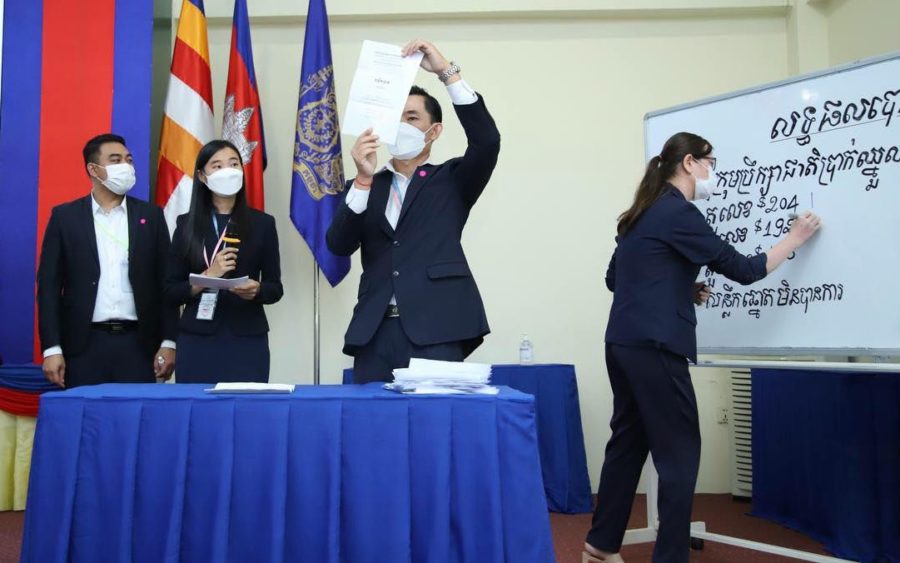Four weeks of minimum-wage negotiations ended on Tuesday with the government deciding on a $2 increase to garment and footwear sector salaries to $194 a month.
The increase, announced in a statement signed by Labor Minister Ith Samheng, is set to come into force on January 1.
It follows four rounds of weekly negotiations between unions, which initially suggested a $22 raise; employers, which wanted to see the minimum wage cut by $4; and the Labor Ministry.
Kaing Monika, deputy secretary-general Garment Manufacturers Association in Cambodia, said the three parties had voted on Tuesday morning to retain a $192 minimum wage, but Prime Minister Hun Sen added a $2 bonus as part of an annual practice.
Monika said employers would be facing rising costs for social security, pension and health care. Employers were preparing to pay for monthly Covid-19 tests, treatments, equipment like masks and thermometers, and booster shots once a year, he said. The total cost increase per worker would be around $4, he said.
“In fact, based on this situation, we think it is difficult to increase, but the $2 raise is at the discretion of the government,” he said.
“We understand that the livelihoods of our workers are difficult. We accept the suffering they face, especially within this period of time. However, we need to think about the ability of the owners to provide. It is difficult for them to meet the workers’ demand because we need to compete [with other markets]. We are not a privileged country to produce clothes. If the labor cost is too high, we could lose out in the competition,” he said. “We are in the same boat and we have to understand the struggles of each other.”
Keeping the industry viable during a difficult economic period was vital for jobs, he said.
“As we have seen, some workers in some other sectors, especially in service and hospitality, we have seen some lose their jobs. So, for those who still have jobs and regular income, we think this is a good point.”
All workers would need to be tested for Covid-19 after Pchum Ben, he added.
Yang Sophorn, president of the Cambodia Alliance of Trade Unions, said she regretted the wage increase being limited to $2. The vote came down to the employers’ suggestion of $188, government’s $192, and unions’ $204. Only six of 17 unions voted for the unions’ suggestion, with 11 siding with the government, she said.
She said workers had lost public holidays starting this year, and the Commerce Ministry had claimed economic growth of 3.3 percent in eight months this year. Food costs had also risen, she said.
“Both the employers and government accepted that food costs in the market have increased, and workers’ living conditions are facing challenges,” she said. “All parties accepted this, but the wage increase is only $2 between last year and this year. For this point, I felt like it was hard to accept.”
Many workers also faced difficulty with debt, she added.
“I am very regretful because we know that we have economic growth in Cambodia but we still can’t increase wages for workers and we even know how challenging it is for them.”













